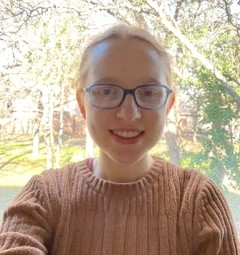All SSAT Upper Level Math Resources
Example Questions
Example Question #21 : Properties Of Exponents
Which of the values below is equal to 

Therefore,
Thus, 64 is the correct answer.
Example Question #22 : Properties Of Exponents
Which of the values below is equal to 

Given that 
Therefore, 32 is the correct answer.
Example Question #23 : Properties Of Exponents
Which of the following is equal to 27?


Given that 

Therefore, 
Example Question #24 : Properties Of Exponents
Evaluate:
The bases of all three terms are alike. Since the terms are of a specific power, the rule of exponents state that the powers can be added if the terms are multiplied.
When we have a negative exponent, we we put the number and the exponent as the denominator, over
Example Question #21 : Properties Of Exponents
Simplify:
To solve this problem, we start with the parentheses and exponents in the denominator.
Next, we can bring the 
Finally, to get rid of the negative exponent we can bring it back down to the denominator.
Example Question #461 : Grade 6
What is 
When expanding an exponent, we multiply the base by itself for the number indicated by the exponential value.
In this case, our base number is 



Remember, the question asks us for the multiplication problem, not the answer to 

Example Question #14 : Write And Evaluate Numerical Expressions With Exponents: Ccss.Math.Content.6.Ee.A.1
What is 
When expanding an exponent, we multiply the base by itself for the number indicated by the exponential value.
In this case, our base number is 



Remember, the question asks us for the multiplication problem, not the answer to 

Example Question #26 : Properties Of Exponents
What is 
When expanding an exponent, we multiply the base by itself for the number indicated by the exponential value.
In this case, our base number is 



Remember, the question asks us for the multiplication problem, not the answer to 

Example Question #27 : Properties Of Exponents
What is 
When expanding an exponent, we multiply the base by itself for the number indicated by the exponential value.
In this case, our base number is 



Remember, the question asks us for the multiplication problem, not the answer to 

Example Question #23 : Properties Of Exponents
What is 
When expanding an exponent, we multiply the base by itself for the number indicated by the exponential value.
In this case, our base number is 



Remember, the question asks us for the multiplication problem, not the answer to 

Certified Tutor
All SSAT Upper Level Math Resources

































































